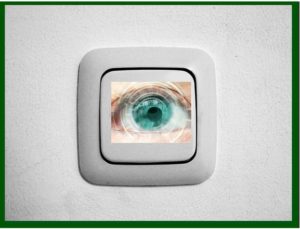
Ever experienced an irritating twitch in your upper or lower eyelid? Or one that is barely noticeable?
You may have Myokymia, a medical term for eyelid twitching.
There are a few well-known common causes, including excess caffeine or alcohol intake, bright light, or stress.
Less well known and by far the most common cause of eyelid twitching results from irritation of the inner eyelids or the surface of the eye – irritation that is nearly always a sign of an eye infection.
Eyelid infections are incredibly common. Staph Aureus bacterium and other microorganisms live in our nostrils every day. When we develop sniffles or runny noses, or worse yet, when someone else sneezes into our face, bacteria that don’t typically live in the eye find themselves in a new locale and proliferate, causing an eye infection called blepharoconjunctivitis. It can also be picked up at the gym from inadequately sanitized workout equipment.
Like all infections, blepharoconjunctivitis comes with inflammation. Inflammatory cells irritate the small nerve fibers in the eyelids, causing eye twitching to develop. Sometimes, these eye infections can be so subtle that eyelid twitching may be the only symptom someone initially notices. Even though twitching like this seems minor, the infection requires medication to resolve it. Therefore anyone experiencing eyelid twitching for more than a few days should see an ophthalmologist for evaluation and treatment.
Less commonly, long-standing eyelid twitching may be a habit spasm, a tic or nervous twitch that often develops in childhood. Habit spasms are repetitive movements that can sometimes stop when the patient is paying attention to the spasm, but return with distraction. With time, these spasms tend to disappear without treatment.
Far more rarely, but more severely, Myokymia can signal a serious neurologic disorder such as Multiple Sclerosis, Guillain-Barre Syndrome, or even a glioma.
While there’s no magic cure to stop eye twitching, an appointment with your ophthalmologist can be the key to switch off your twitch.
Written by: Alan Mendelsohn, M.D., F.A.C.S.
